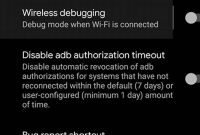Restarting your phone is one of the easiest fixes for many common problems that you may encounter. Sometimes, your phone might be running slow, having trouble connecting to Wi-Fi or Bluetooth, or might just stop responding altogether. But restarting your phone can solve a lot of these issues, and you don’t need to be a tech guru to do it. In this article, we’ll guide you through the steps to restart your phone like a pro, regardless of whether you use an iPhone or Android.

Why is Restarting Your Phone Important
Restarting your phone can help resolve technical issues, improve performance and speed, and prevent freezing or crashing. But why is it really important to restart your phone? Here are the reasons:
Fix technical problems
One of the most common reasons why restarting your phone is important is to resolve technical issues. When you restart your phone, it clears out temporary files, caches, and data stored in your phone’s memory. This helps fix any issues that can arise from too much background processes, outdated software, or corrupted files. When this happens, restarting your phone can quickly fix the issue without having to go through complicated troubleshooting steps.
Improve performance and speed
Another reason why restarting your phone is beneficial is that it helps improve performance and speed. As you use your phone throughout the day, it collects more and more data, including cached files, open apps, and browsing history. This can slow down your phone’s performance and result in lag times. Restarting your phone can help clear out all the unnecessary data and free up your phone’s processing power, making it run more smoothly and quickly.
Prevent freezing or crashing
Finally, restarting your phone is important to prevent freezing or crashing. Sometimes, your phone may become unresponsive or stop working altogether. This can happen when too many processes are running at the same time, or when the device’s memory is overloaded. By restarting your phone, you essentially give it a fresh start and allow it to work more efficiently. This helps prevent any potential crashes or freezes that may occur as the result of an overworked phone.
What Happens When You Restart Your Phone
Restarting your phone may seem like a simple task to do, but it has a lot more benefits than you think. Here are some of the things that happen when you restart your phone:
1. Stops Running Apps and Processes
When you restart your phone, all running apps and processes are stopped, allowing your phone to free up memory space. Apps that are left open on your phone can slow it down, causing it to lag or even crash.
- For Android: To check if you have apps running in the background, tap the “Recent Apps” button. It will show you all the apps that are currently running. You can swipe up on them to close them or tap on the “Clear All” button at the bottom to close all apps.
- For iPhone: To check if you have apps running in the background, swipe up from the bottom of the screen. It will show you all the apps that are currently running. Swipe up on them to close them.
2. Clears Your Phone’s Memory
Restarting your phone clears your phone’s memory cache, which helps it to operate faster and more efficiently. Memory cache is like a short-term memory that stores recent apps or information to speed up the app loading time. However, when it gets too full, it can slow down your phone. Clearing it up by restarting your phone can free up space and make it run faster.
When you restart your phone, it also clears the RAM, which is where your phone stores data for fast access. RAM stands for random access memory, and it is precisely that, random. When your phone runs low on RAM, it can create slowness.
Tip: If you find your phone running slow and restarting it helps it run faster, consider restarting it at least once a week to keep it running smoothly.
How to Restart Your Phone
When your phone freezes up or simply starts acting up, a quick solution is to restart it. Doing so can refresh the phone’s memory and potentially resolve any issues you may be experiencing. Below are the steps to take when restarting your phone.
The first step in restarting your phone is to press and hold the power button. Usually, this button is located on your phone’s right side or on its top edge. Hold it for a few seconds until a menu pops up.
Select “Restart”
Next, select the “Power Off” option, and then select “Restart” from the menu that pops up. Depending on your phone’s model, the button may be labeled differently, but it should always be a variation of the restart option. Be sure not to select “Power Off” if you do not want to turn off your phone completely.
Wait for your phone to restart
Once you have selected the restart option, wait for your phone to reboot. This process typically takes only a few seconds. Your phone will turn off first, then restart and display your lock screen, or any crash message if it couldn’t restart successfully. You can now check to see if your phone has resolved the issues it was experiencing.
How Often Should You Restart Your Phone
Phones have become an essential part of our lives, and we use them a lot throughout the day. But, have you ever thought about how often you should restart your phone? Restarting your phone can help prevent some technical issues and keep your phone running smoothly. Here’s what you should know about restarting your phone.
The Benefits of Restarting Your Phone
Restarting your phone clears out your phone’s temporary memory and cache, making your phone run faster and smoother. It can also solve some minor technical issues you might be experiencing, like a frozen screen or apps that are not responding.
How Often Should You Restart Your Phone?
It is recommended to restart your phone at least once a week. By doing so, you are giving your phone a fresh start and allowing it to maintain its optimal performance. However, you may also need to restart your phone if you notice your phone is running slow or if you’re experiencing technical issues.
- If you’re someone who uses your phone heavily throughout the day, you might consider restarting your phone every few days.
- If you have an older phone or a phone that hasn’t been restarted in a while, you might need to restart it more often to keep it running smoothly.
Keep in mind that some phones, like iPhones, have an automatic reboot option programmed to occur once a week. If your phone has this feature, make sure it’s turned on.
How to Restart Your Phone
Restarting your phone is simple, and the process might vary slightly depending on your phone model. Here are the general steps to restart your phone:
- Press and hold the power button on your phone until the power menu appears.
- Select “Restart” or “Reboot.”
- Wait for your phone to turn off and on again.
If you’re still having technical issues after restarting your phone, you might consider contacting your phone manufacturer or service provider for further assistance.
Restart Your Phone Like a Pro
Restarting your phone is a simple task, but it can be frustrating when it doesn’t work. In this article, we will cover what to do if your phone won’t restart and provide some tips on how to restart your phone effectively.
What to Do If Your Phone Won’t Restart
If you have tried restarting your phone and it won’t turn on, you can try performing a hard reset. Follow these steps:
- Press and hold down the power button and volume down button simultaneously for at least 10 seconds.
- Release the buttons when you feel a vibration or see the manufacturer’s logo appear on the screen.
- Your phone will start up again, and you should be able to use it normally.
If your phone still won’t restart after performing a hard reset, seek assistance from a professional. This could be your phone’s manufacturer, service provider, or a repair technician.
Tips for Restarting Your Phone
Now that we’ve covered what to do if your phone won’t restart, let’s look at some tips on how to restart your phone like a pro.
- Use the Power Button: Press and hold down the power button until the power off option appears on the screen. Tap the power off option, wait for your phone to shut down completely, and then press and hold the power button to restart.
- Remove the Battery: If your phone has a removable battery, you can try removing it and then putting it back in before restarting your phone.
- Check for Updates: Your phone’s operating system may need an update, which could be causing issues with restarting. Check for updates in your phone’s settings and install any available updates.
- Clear Cache: Clearing your phone’s cache can help free up space and improve performance, which could help with restarting issues. The steps to clear your cache vary depending on your phone’s make and model, but they can often be found in the settings menu under storage or device care.
- Reset to Factory Settings: If all else fails, you can try resetting your phone to its factory settings. This will erase all data and return your phone to its original settings. Make sure to back up your data before resetting your phone.
Remember, it’s always a good idea to back up your data regularly to avoid losing important information in case of a device failure or other issues.
Can Restarting Your Phone Damage It
Are you hesitant to restart your phone because you’re worried it might cause damage to your device? Rest assured, restarting your phone will not cause any harm. In fact, restarting your phone can actually be beneficial to your device’s performance. Here are some reasons why:
Clears Out Memory
When you have multiple apps open on your phone, it can cause your phone to slow down or freeze. Restarting your phone clears out the memory and closes all apps, giving your phone a fresh start. This helps your phone run more smoothly and quickly.
Prevents Overheating
If you’re using your phone for an extended period of time, it may start to overheat. Restarting your phone can help prevent this. When your phone is restarted, it stops running any background processes that may be causing it to overheat. Therefore, it’s always a good idea to restart your phone if it starts to feel hot.
Fixes Software Glitches
Sometimes, software glitches can cause your phone to act slow or not work properly. Restarting your phone can fix these glitches and help your phone run smoothly again. This will save you from having to take your phone to a technician.
Improves Battery Life
If you’re experiencing battery problems with your phone, try restarting it. Your phone’s battery will get a break from running apps and processes when you restart it, which can help prolong its lifespan.
Prolongs Phone Life Span
Restarting your phone regularly can help extend its overall lifespan. When you restart your phone, you’re allowing it to cool down and refresh, which can prevent wear and tear on the phone’s components. This means you’ll be able to use your phone for a longer period of time without having to replace it.
Avoids Security Issues
Restarting your phone can help avoid security issues. Restarting your phone regularly can help install any system updates that are necessary for fixing security vulnerabilities. Additionally, it can help remove any malicious software that may have been installed on your phone.
Frequently Asked Questions
| Questions | Answers |
|---|---|
| How often should you restart your phone? | It’s recommended to restart your phone at least once a week to help keep it running smoothly. |
| Can restarting your phone damage it? | No, restarting your phone will not cause any damage to it. |
| Does restarting your phone delete anything? | No, restarting your phone will not delete any data or information from it. |
| Can restarting your phone improve its performance? | Yes, restarting your phone can help improve its performance by closing any background apps or processes that may be running and slowing it down. |
| What is the difference between restart and reset? | Restarting your phone simply shuts down and then restarts the device, while resetting your phone erases all data and settings and returns it to its original factory settings. |
Thank You for Learning How to Restart Your Phone!
We hope this article was helpful in teaching you how to restart your phone like a pro. Remember, restarting your phone at least once a week can help keep it running smoothly. If you have any other questions or if there are other tech-related topics you want to learn about, be sure to visit our blog regularly. Thank you for reading and see you again soon!





